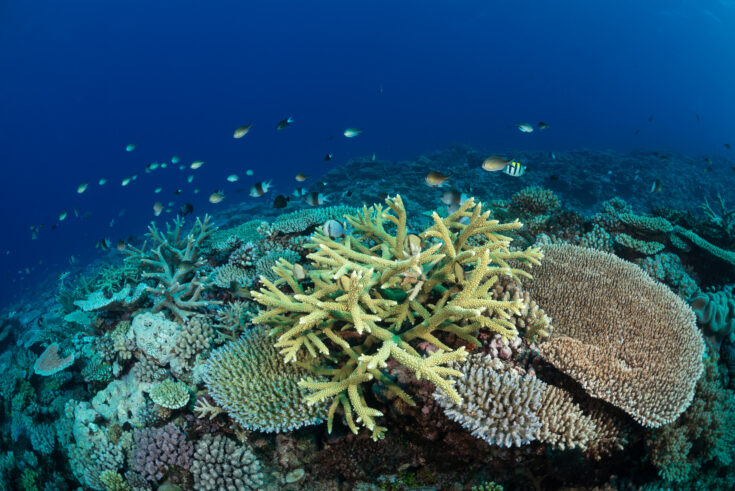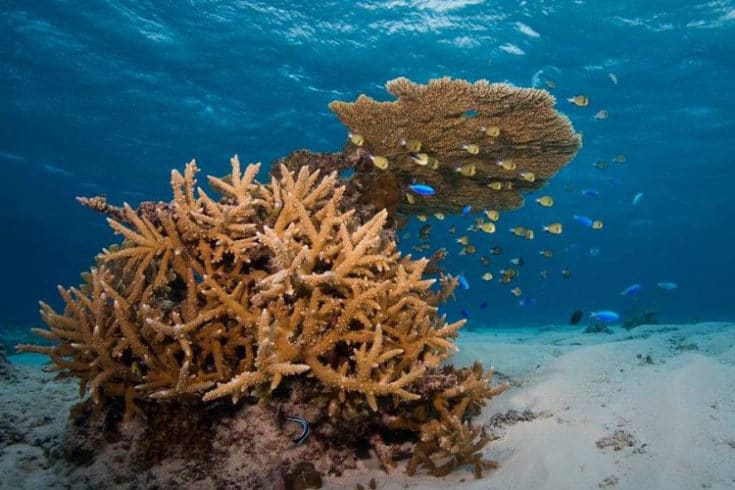
Happy World Oceans Day!
This year’s theme for World Oceans Day is “Revitalization: Collective Action for the Ocean.” Here at the Khaled bin Sultan Living Oceans Foundation, we are adopting this theme by celebrating all of the ways we are working with partners to bring about positive ocean change.
We know we can’t save the ocean alone, so we embrace our philosophy of Science Without Borders® and work with like-minded institutions on areas where we can lend our expertise. Over the past year we have made great strides in working with our partners around the world on joint efforts to preserve, protect, and restore our living oceans.
This past week, we gathered with ocean foundations from around the world in Morocco for the Second Foundations Dialogue meeting. Organized by the Intergovernmental Oceanographic Commission of UNESCO, this workshop helped us align our efforts with other philanthropic institutions so that together we can collaborate to better move the needle towards ocean conservation.

The Living Oceans Foundation has always worked closely with our partners in the field to implement our science and education programs. This past year we deepened our partnership with the Pacific Blue Foundation and Scripps Institution of Oceanography to expand our work in Fiji. Together, we are using machine learning to automate the analysis of images from coral reef photo transects and improve the accuracy of the University of California San Diego’s CoralNet cloud-based tools. We also deepened our partnership with the Alligator Head Foundation, expanding our Mangrove Education and Restoration program to key stakeholders throughout Jamaica, including educators, community members, and government officials. This partnership is working on a Mangrove Development, Education, Awareness, and Livelihoods (Mangrove DEALs) program to to increase awareness and appreciation of mangroves and advocate for greater preservation of wetland ecosystems.
The foundation also continues our long-standing partnership with colleagues at the University of Miami’s Rosenstiel School of Marine and Atmospheric Science. We continue to work with our Chief Scientist, Dr. Sam Purkis, and his colleagues at the University of Miami to model and map coral reef health and resiliency. Earlier this year we expanded that effort with funding from the National Science Foundation (NSF) to look at foraminifera as bioindicators of past and present coral reef health. This project not only will provide a new way to assess coral reef health, it will also support the development of new educational materials for students to access on our Coral Reef Education Portal. We’re also working with colleagues at the Rosenstiel School on other educational programs, including developing virtual reality field trips.
Other new and exciting educational partnerships include working with the Bahamas Marine Mammal Research Organisation and Dr. Ryann Rossi creating curriculum about anthropogenic noise, and working with K2 Studios to develop an educator’s guide for the film called Ocean Odyssey.
And last, but certainly not least, is our ongoing partnership with NASA. This partnership is still going strong, as NASA is using our ground-truthed maps from the Global Reef Expedition to help them create a global map of coral reefs from a combination of drone footage and satellite imagery. Once these maps are finished, they will allow us to see the extent of the world’s coral reefs over space and time.
None of these projects would be possible for us to do on our own. But by working together, we can leverage our considerable experience in marine science, outreach, and education, to bring about a better future for our living oceans.
One Comment on “World Oceans Day: Working with Partners for Positive Ocean Change”
Jan Baldwin
I am so proud of what the Living Oceans Foundation has been able to do. Keep up the good work!